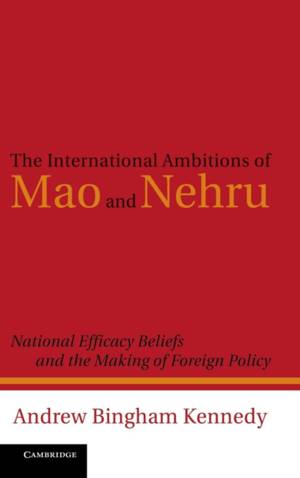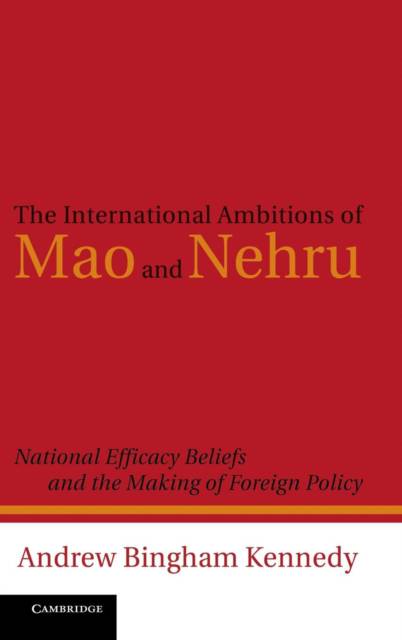
Je cadeautjes zeker op tijd in huis hebben voor de feestdagen? Kom langs in onze winkels en vind het perfecte geschenk!
- Afhalen na 1 uur in een winkel met voorraad
- Gratis thuislevering in België vanaf € 30
- Ruim aanbod met 7 miljoen producten
Je cadeautjes zeker op tijd in huis hebben voor de feestdagen? Kom langs in onze winkels en vind het perfecte geschenk!
- Afhalen na 1 uur in een winkel met voorraad
- Gratis thuislevering in België vanaf € 30
- Ruim aanbod met 7 miljoen producten
Zoeken
The International Ambitions of Mao and Nehru
National Efficacy Beliefs and the Making of Foreign Policy
Andrew Kennedy
Hardcover | Engels
€ 183,45
+ 366 punten
Omschrijving
Why do leaders sometimes challenge, rather than accept, the international structures that surround their states? In The International Ambitions of Mao and Nehru, Andrew Kennedy answers this question through in-depth studies of Chinese foreign policy under Mao Zedong and Indian foreign policy under Jawaharlal Nehru. Drawing on international relations theory and psychological research, Kennedy offers a new theoretical explanation for bold leadership in foreign policy, one that stresses the beliefs that leaders develop about the "national efficacy" of their states. He shows how this approach illuminates several of Mao and Nehru's most important military and diplomatic decisions, drawing on archival evidence and primary source materials from China, India, the United States, and the United Kingdom. A rare blend of theoretical innovation and historical scholarship, The International Ambitions of Mao and Nehru is a fascinating portrait of how foreign policy decisions are made.
Specificaties
Betrokkenen
- Auteur(s):
- Uitgeverij:
Inhoud
- Aantal bladzijden:
- 272
- Taal:
- Engels
Eigenschappen
- Productcode (EAN):
- 9780521193511
- Verschijningsdatum:
- 29/12/2011
- Uitvoering:
- Hardcover
- Formaat:
- Genaaid
- Afmetingen:
- 157 mm x 231 mm
- Gewicht:
- 476 g

Alleen bij Standaard Boekhandel
+ 366 punten op je klantenkaart van Standaard Boekhandel
Beoordelingen
We publiceren alleen reviews die voldoen aan de voorwaarden voor reviews. Bekijk onze voorwaarden voor reviews.









